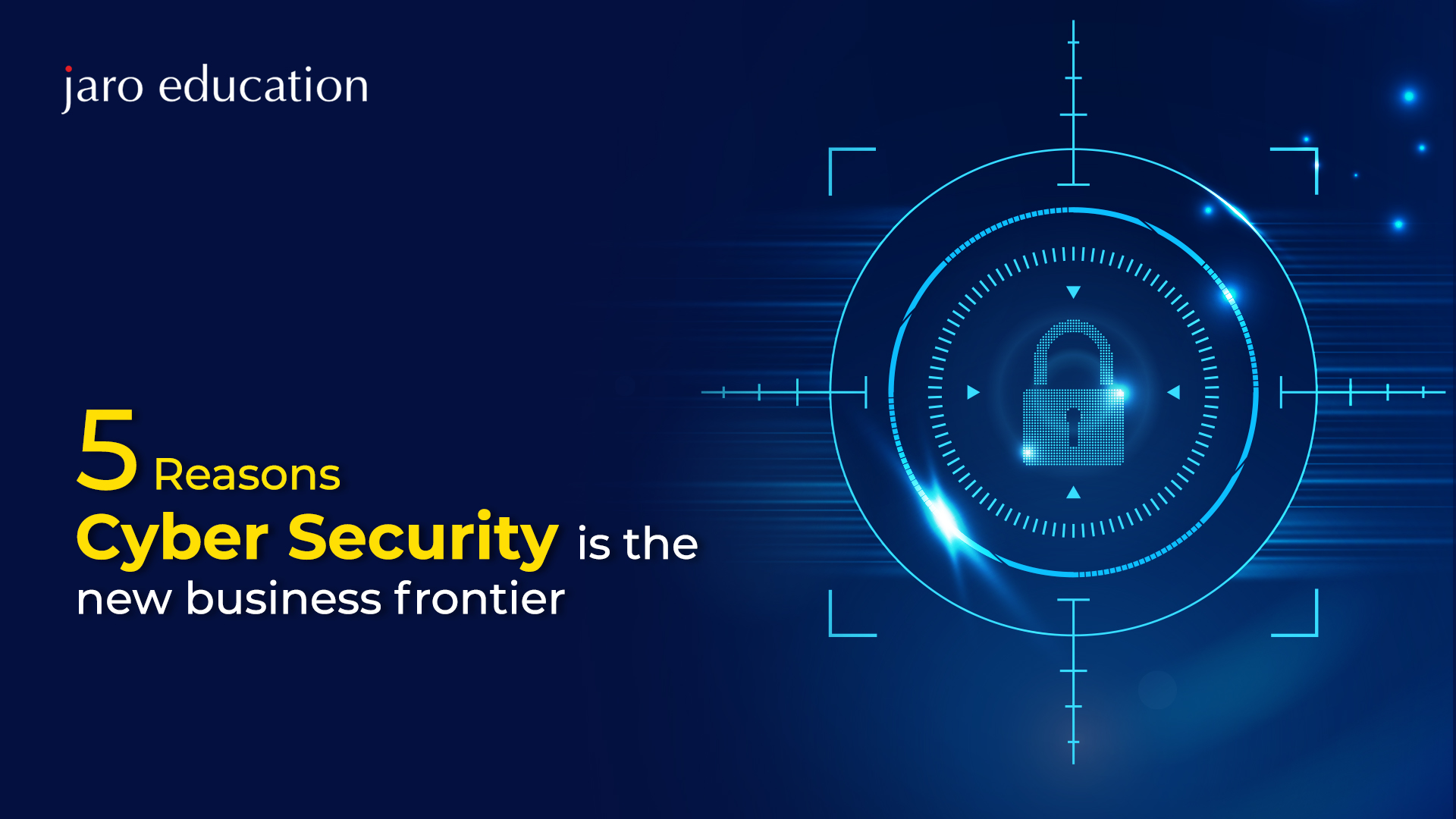
Technology is evolving at a breakneck speed, and the adoption of the same by companies is happening at more or less the same speed. Although there are lucrative opportunities for businesses in the market, there are also potential IT infrastructure threats that need to be mitigated. This is where cybersecurity becomes essentially important.
There are enough job opportunities in the cybersecurity domain and aspirants need to opt for online cybersecurity courses or certification of cybersecurity from reputed institutions like IIM Nagpur. They offer Joint International PG Certificate Programme in Cybersecurity Management and Data Science for anyone keen on cybersecurity programs. Now let’s focus on why cybersecurity is the new business frontier:
Reasons Why Cybersecurity is the New Business Frontier
1. Cyberattacks on the rise
The growing accessibility to the internet by the general population is also increasing the rise of cybercrimes. As per estimates, over 90% of the global population will have access to the internet. There is likely to be a proportional increase in the number of cyberattacks.
Besides this, the emergence of new technologies like IoT has increased the vulnerabilities of IT. More and more cybercriminals are adapting as per the growth of technology and this poses both a challenge and an opportunity for cybersecurity.
2. Keeping reputation intact
Customer satisfaction has become the cornerstone of today’s business. Businesses can’t thrive unless customers trust and believe in the brand. Hence, it becomes doubly important that you are able to transact with your customers in a secure environment. This can even be projected as a unique selling point for the business.
Most consumers today are tech-savvy to understand the importance of data security and privacy. For instance, today, customers will not buy anything from an online store unless they are positive about the security of the same while making payment. Most of them are likely to rely upon reviews on third-party websites to validate the online store’s security. This makes cybersecurity an increasingly valid business proposition.
3. Adoption of mobile and cloud data
The accessibility of the internet on mobile phones has improved the rate of adoption of mobile technology from the corporate market. This has ensured that these devices have also become the gateways for cybercriminals to hack into company websites and IT infrastructure. Thus, making cybersecurity a validated need.
The flexibility offered by the cloud has also allowed businesses to access their data from any part of the world. This also has increased the chances of a data breach from any part of the world. With the increased rate of cloud adoption, it is required that cloud companies offer stringent security systems with multiple layers of security since cloud technology is new and evolving.
4. Regulatory requirements
Every company entrusted with client data is expected to protect it at all costs. This requires the company to adhere to strict data and privacy regulations. Once a company suffers a data breach, it loses its reputation in the market and can invite hefty fines from regulatory authorities for not being security compliant.
In addition, data breaches can also invite lawsuits from client companies that can run into millions of dollars. Hence it is in companies’ best interest to have a secure cybersecurity program where the chances of a data breach are minimal.
5. Employee related incidents
Apart from external threats, cybersecurity-related security threats related to employee actions are also rising. Most often, employees due to their careless actions, employees can often invite external threats that can compromise the IT infrastructure. For instance, sharing passwords with unauthorised personnel can be one of how security can be compromised.
This makes it imperative to have strong checks and balances in place for cybersecurity within its IT environment. Unless a culture of security is fostered amongst all internal and external stakeholders of a company, it is difficult to have a robust cybersecurity programme.
Final Thoughts
The blog must have given you enough ideas on why cybersecurity is the next business frontier. Suppose you happen to be keen on securing a certification on cybersecurity or cybersecurity certification, which is a combination of data science and cybersecurity from IIM Nagpur. In that case, you must enrol for their Joint International PG Certificate Programme in Cybersecurity Management and Data Science.
The programme empowers professionals in mitigating cyber threats and makes them understand, plan, prepare and manage cybersecurity risks from an information vantage point. The interdisciplinary techno-managerial program is meant for working professionals in the middle and senior management and lays the foundation for cyber security management. Learn more and enroll in the Joint International PG Certificate Programme in Cybersecurity Management and Data Science from IIM Nagpur!
Frequently Asked Questions (FAQs)
- How do I pursue a career in Cyber Security in India?
You can pursue a career in cybersecurity by enrolling for the Joint International PG Certificate Programme in Cybersecurity Management and Data Science from IIM Nagpur in association with the University of Memphis, USA.
- Where can I learn Cyber Security?
For starters, you need to have a keen interest in both software and hardware aspects of IT and a degree in maths and physics.
- How do I get a job in Cyber Security?
After you get some work experience, you can enrol in the Joint International PG Certificate Programme in Cybersecurity Management and Data Science from IIM Nagpur and improve your chances of getting a job in cyber security.
- What is the average salary that a Cyber Security engineer earns?
The average salary of a cybersecurity analyst starts at Rs.7.2 lakhs per annum and can climb up to 16 lakhs per annum for a senior cybersecurity engineer with 10 years of experience. [Source: Ambition Box from Naukri]




